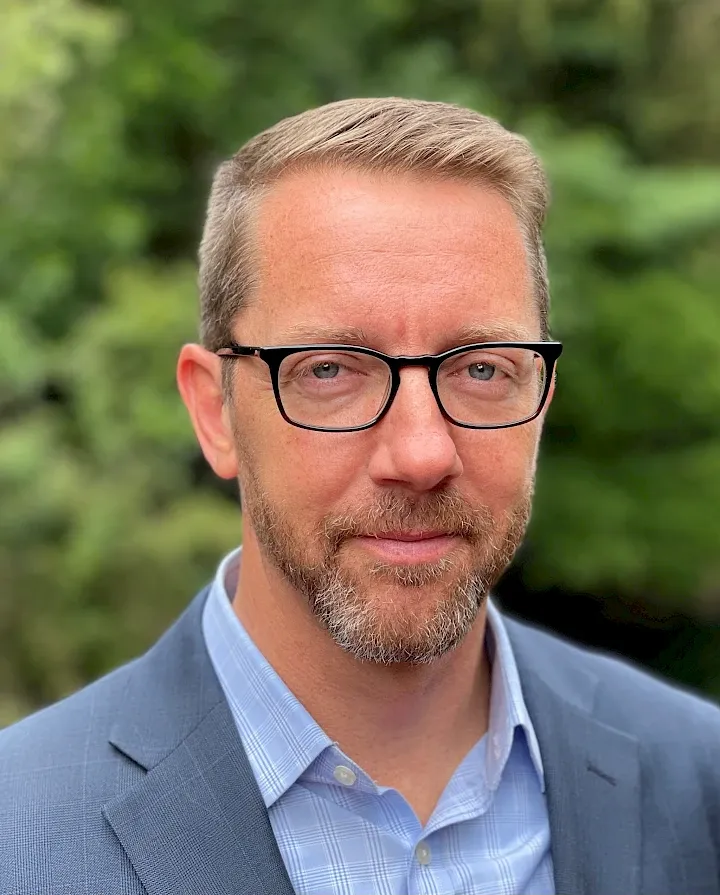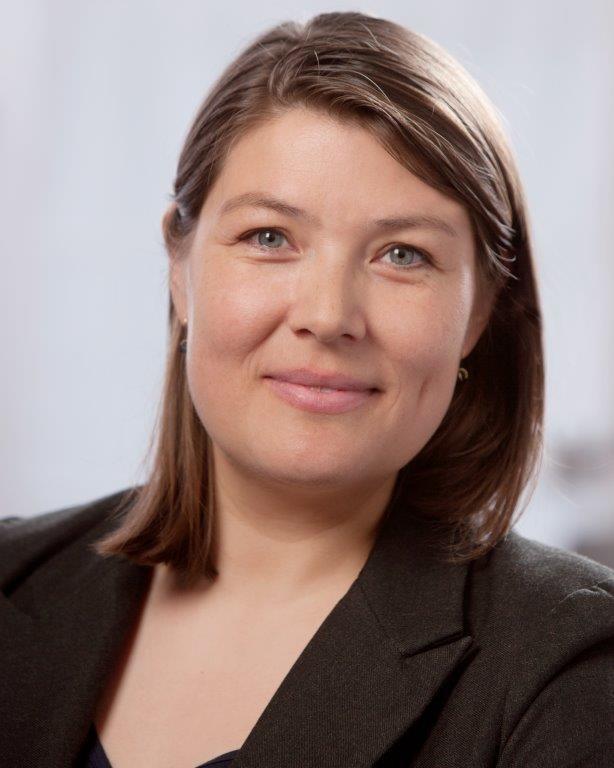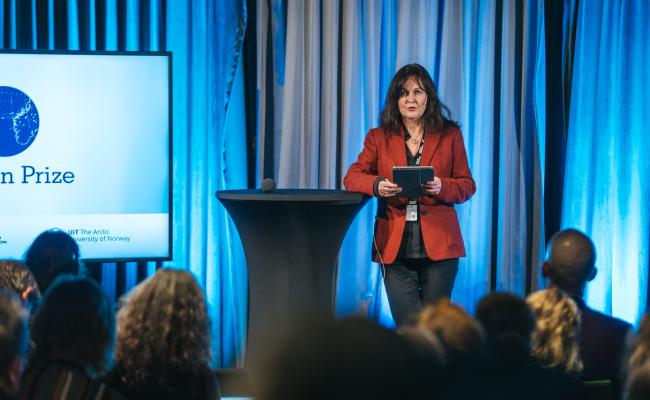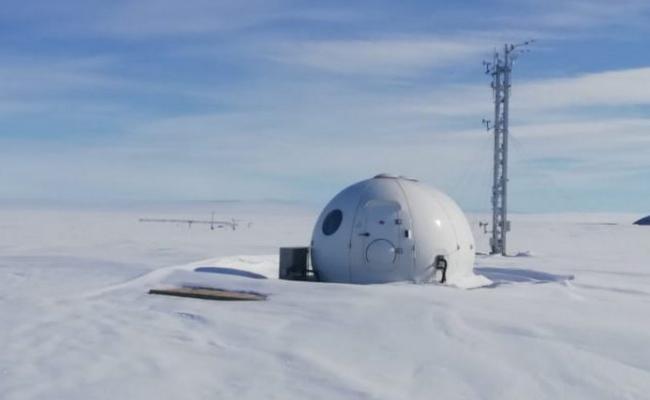The Arctic Council With New Decisive Step Forward

“With just over one year left of the Norwegian chairship, I am very pleased that Working Groups can take more steps to advance their projects and initiatives for delivery at the end of our chairship,” says Morten Høglund, Chair of the Arctic Council’s Senior Arctic Officials, on Wednesday. (Screenshot from Arctic Frontiers)
All Arctic countries agree that the Arctic Council's working groups can resume meetings in a virtual format. “This is critical in enabling the council to effectively respond to rapid climate change and other urgent issues,” says Morten Høglund, who leads the council under Norway's chairship.
How can the Arctic Council's work be done more efficiently in the current situation?
The parties have now reached a consensus: Official meetings in the working groups will gradually be reintroduced on digital platforms.
This opens the way for more interaction and activity at the working group level, where the council’s main work takes place. Half a year ago, the groups were able to resume their projects, but only via written procedure – a laborious way of working.
Meeting the joint commitment
“As I’ve emphasized in the past, without functioning Working Groups, we don’t have an Arctic Council,” says Morten Høglund, Norway's Arctic Ambassador and Chair of the Arctic Council’s Senior Arctic Officials (SAOC).
“In May 2023 at the 13th meeting of the Arctic Council, all Arctic states and permanent participants reaffirmed their commitment to safeguard and strengthen the Arctic Council," he points out and continues:
“Allowing working groups to virtually meet and advance their work is critical in meeting that commitment and the responsibility the council has to play a leading role in addressing issues of emerging concern as it relates to environmental protection and sustainable development in the Arctic.”
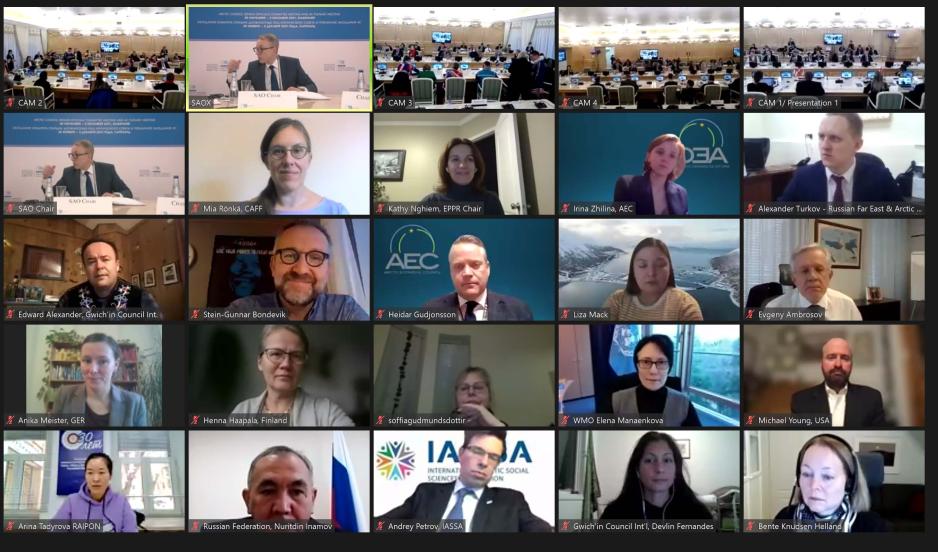
In resuming virtual working group meetings, the Arctic Council aims to improve efficiency and collaboration within project work and enable the groups to advance more complex issues. Illustration image from a SAO plenary meeting in 2021. (Photo: The Arctic Council)
Backdrop
– The Arctic Council is an intergovernmental forum for cooperation between the region's eight states, indigenous peoples, and other inhabitants in joint Arctic matters, particularly sustainable development and climate change.
– After Russia's full-scale invasion of Ukraine, the council's work was temporarily paused in March 2022 by Canada, Finland, Iceland, Denmark, Norway, Sweden and the USA. The council's Russian chairship continued its program with participation from other countries.
– In June 2022, the seven western Arctic countries revitalized some project work within the Arctic Council without Russian participation.
– Norway took over the chairship from Russia in May 2023, and got to work on carving out future solutions for the council.
– In August 2023, all the Arctic countries agreed that the working and expert groups could resume activities based on written procedure.
– Two weeks ago, Russia announced the suspension of payments to the Arctic Council until it resumes "full-fledged work." At the same time, the Norwegian chairship had recently sent out a proposal to all member states on more efficient working methods.
Productive dialogue
“The decision to resume virtual working group meetings was the result of productive consultations with all Arctic states and permanent participants that have taken place over the last months,” continues Norway's top Arctic diplomat.
As SAOC, Høglund will play an active role in the revitalization of meeting points between the working groups, such as providing guidance as the groups begin to plan schedules for project and plenary meetings.
“With just over one year left of the Norwegian chairship, I am very pleased that working groups can take more steps to advance their projects and initiatives for delivery at the end of our chairship. This is critical in enabling the council to effectively respond to rapid climate change and other urgent issues impacting the region and beyond,” he emphasizes.
More in-depth about the new consensus
– The resumption of official working group meetings will take place gradually over the next three to four months.
– The ability to meet virtually extends to all project-level teams and expert groups.
– The council's 38 observers, of which 13 are states, and external experts are invited to reengage in these meetings as relevant.
– Meetings on the Senior Arctic Official level will remain on pause until such time as consensus is reached by the Arctic states, in consultation with permanent participants, on further modalities for their resumption.
The importance of conversation
“There simply is no replacing the connections and creativity that are generated in real-time interactions with subject matter experts. Engaging with our counterparts in real time is key to the short and long-term success of the Arctic Council,” says Patrick Huber.
He is Chair of the Arctic Contaminants Action Program Working Group (ACAP).
“Trust, understanding and respect are the cornerstones on which we build our Arctic cooperation, and we need to strengthen those elements to ensure the viability of our work,” Huber points out and continues:
“As projects approach key milestones and approval of final products are prepared, Arctic Council working wroups will need to act with certainty and confidence, and they will want to ensure that the communities of Arctic are informed and engaged in a timely manner.”
The Arctic Council's six working groups and expert group
– Arctic Contaminants Action Program (ACAP)
– Arctic Monitoring and Assessment Programme (AMAP)
– Conservation of Arctic Flora and Fauna (CAFF)
– Emergency Prevention, Preparedness and Response (EPPR)
– Protection of the Arctic Marine Environment (PAME)
– Sustainable Development Working Group (SDWG)
– Black Carbon and Methane Expert Group
The voices of indigenous peoples
The importance of making progress in the circumpolar Arctic cooperation framework is also underlined by Sara Olsvig.
She is International Chair of Inuit Circumpolar Council – one of the council's permanent participants.
“The Arctic Council is critical for Arctic cooperation and the permanent participation of Indigenous Peoples is what makes this body unique. The ability of the Arctic Council Working Groups to continue to effectively respond to the environmental, climatic and social development is of great importance to the Peoples of the Arctic,” says Olsvig.
“Resuming virtual meetings of the Arctic Council Working Groups is a key step in maintaining and advancing the strong partnerships built over decades, as well as the full and effective participation of Arctic Indigenous Peoples in the work of the Arctic Council,” she maintains.
Permanent participants in the Arctic Council
– Six organizations representing Arctic indigenous peoples have status as permanent participants in the Arctic Council. They have full consultation rights in connection with the council’s negotiations and decisions – as well as the opportunity to participate in all its meetings and activities.
– The Sami Council (SC)
– Inuit Circumpolar Council (ICC)
– Russian Association of Indigenous Peoples of the North (RAIPON)
– Aleut International Association (AIA)
– Arctic Athabaskan Council (AAC)
– Gwich'in Council International (GCI)


